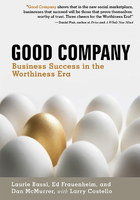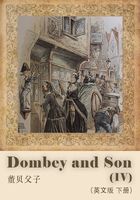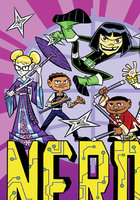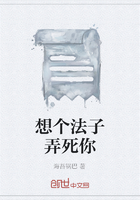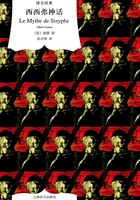Understanding Who's Profiting from Injustice and What Can Be Done about It
To stop an injustice, we have to first understand who is profiting from it. Human suffering, misery, and oppression that fall systematically on people based on their class, race, gender, sexual orientation, religion, or disability are no accidents. Despite what we're often told, and perhaps want to believe, extreme social inequality happens by design. It results from conscious decisions that promote the profits, status, and power of some people over what is good and necessary for the vast majority of us.
When something is by design, it can be changed. The most important question facing any community or society is how much inequality it will tolerate. The answer is in our hands. It results from political struggle. But that struggle is never just about who gets what or who can profit from the labor of others. It comes back to whose humanity is taken for granted and who has to fight to live a dignified life. This is why coming out—asserting your humanity and forcing society to recognize it—has been part of every social struggle in history and why engaging in social change is so important to living out your purpose rather than being a pawn in someone else's imagination.
This chapter explains why racial and economic inequality is increasing, who is benefiting, and what it will take to change course. The first section of the chapter provides a simple framework for how inequality works and how it can be dismantled. The second section provides a brief overview of the historical struggle for racial and economic justice in the United States and the backlash we've experienced over the past four decades. The third section reviews the difficult moment we're in today, with inequality, racism, and climate change fueling one another. The final section discusses how we can break vicious cycles like the one we're in. The chapter provides context for the principles and practices in the rest of the book and a way of thinking that can be used to get to the root causes of injustices in our communities. A main point is that we need to be brutally honest about what we're up against but also clear about our power to create a world in which everyone is included and able to thrive.
How Inequality Works
I've found Doug Massey's book Categorically Unequal: The American Stratification System helpful in clarifying how inequality works and why it's so hard to fight against. Massey says that the amount and character of inequality varies across societies and human history but that it always “boils down” to two basic steps. First, societies place people into social groups based on characteristics they're either born with (e.g., skin color or sex assigned at birth) or acquire during their lives (e.g., where they live or what work they do) and rank these groups on a scale of value. These social groups and their ranking are always fundamentally arbitrary. Second, societies distribute resources, opportunities, and authority based on social categories. This process of dividing and distributing works only if enough people believe that the social groups into which they and others have been placed and ranked are natural and that inequality is a logical result of human differences.[1]
When we stop and think, we know this is not true. We know that each human is unique. We understand ethically and emotionally that people have intrinsic dignity. But seeing people as precious individuals requires energy, especially when we feel insecure or scared. Our brains are wired to cut corners. We use simple categories and stories to make sense of complex situations. Against all evidence of human variation, we take the mental shortcut of categorizing people into groups. Once we know a person's group marker—race, gender, religion, neighborhood, job—we think we have that person's story.
Our human tendency to categorize makes us easy targets for the false idea that not only are social categories real, but some groups are more worthy than others. They can be ranked. This “hierarchy of human value” is a source of much of the pain and suffering in human societies. Once a group of people's humanity is diminished or obliterated, it's possible to exploit them and deny them what they need to thrive. Genocide and slavery are the most extreme examples. The wealth of the United States was amassed from lands stolen from Native Americans and labor stolen from African slaves and their descendants. To justify this theft, the most distinguished scholars and theologians of their time spread absurd ideas about the inferiority of people based on their skin color. After slavery was abolished, White elites still needed low-wage agricultural workers to sustain their fortunes. They still wanted to keep Black and White workers from allying. They relied on the same false ideas about race to dictate where and under what circumstances African Americans could work, live, travel, and study. They even replicated a new version of slavery through convict leasing programs.
Once a group of people's humanity is diminished or obliterated, it's possible to exploit them and deny them what they need to thrive.
A small elite gains most of the benefits from racial discrimination. As Ibram X. Kendi explains in Stamped from the Beginning: The Definitive History of Racist Ideas in America, racism is not the unfortunate result of backward ideas. The reverse is true. Elites produce racist ideas about human superiority and inferiority to justify racial oppression. Racism is so pernicious because it fuels a vicious cycle. When people are excluded from resources and denied a say, it reinforces the belief that they matter less. As inequality becomes more extreme or people with privilege feel more threatened, the blame on individuals for unequal social outcomes intensifies. That is why White supremacy is spreading today rather than fading away. We cannot make society more fair and equitable without defeating the idea that some people are worth more than others nor eradicate racism without changing the economic and political rules that fuel its existence.
This double work is what we mean by social change. Whether it's climate change, mass incarceration, gun violence, or the dizzying number of other issues competing for our attention, the work is the same. Organizing is always done with two hands: one focused on crushing the lie that some people are more equal than others and the other on changing the rules of society (government and corporate policies, collective bargaining agreements, legislation, and constitutions) to more equitably distribute resources and opportunities. One of the best examples we have of this kind of struggle that fused demands for dignity and economic equity was the 1968 Memphis Sanitation Strike.
I Am a Man—The Memphis Sanitation Strike
On February 1, 1968, Echol Cole and Robert Walker had finished hauling trash out of the yards of White families in East Memphis. It was raining hard, and they were riding in the back of a decrepit garbage truck when its compactor malfunctioned, crushing them to death. Ten days later, their coworkers—thirteen hundred Black sanitation workers—walked off the job to demand safe working conditions, living wages, and union recognition. While they had many grievances, their underlying demand was to be treated as human beings.[2]
The city's power structure rejected the idea that Black men, who did the dirtiest, worst-paid work, could have a union. Memphis mayor Henry Loeb refused to negotiate. The city's main newspaper stood with Mayor Loeb. It published a torrent of hateful, racist cartoons and articles against the strike. The police attacked the sanitation workers and their supporters as they marched through downtown Memphis. The police went on to lash out at the entire Black community, rampaging through Black neighborhoods, breaking into homes, and beating up anyone they caught on the streets.
The police violence turned a labor dispute into a mass movement to end White supremacy in Memphis. The sanitation workers began carrying large “I AM A MAN” signs. Like the message of Black Lives Matter, the signs crystalized a rebellion of the heart and feet against a lifetime of dehumanization. Clergy stepped forward to support the workers. Black women organized a boycott of downtown businesses that brought Memphis to its knees. Martin Luther King, Jr., came. The strike became a symbol of his quest to eradicate America's sin of poverty in a land of plenty.
Dr. King was murdered on day fifty-four of the strike, on his second trip to Memphis to support the strikers. The night before, he'd told the sanitation workers and their supporters, “Like anybody, I would like to live a long life. Longevity has its place. But I'm not concerned about that now. I just want to do God's will. And He's allowed me to go up to the mountain. And I've looked over. And I've seen the Promised Land. I may not get there with you. But I want you to know tonight, that we, as a people, will get to the Promised Land. And I'm happy, tonight. I'm not worried about anything. I'm not fearing any man. Mine eyes have seen the glory of the coming of the Lord.”[3] Yet, even with King's blood on the hands of the city, Mayor Loeb refused to relent. It took another two weeks—and the pressure from a grief-stricken Coretta Scott King—before Memphis finally recognized the right of Black workers to have a union.
It was no accident that the sanitation workers began their strike to renegotiate their employment contract with the City of Memphis and ended up marching with I AM A MAN signs. Whites in Memphis referred to Black sanitation workers as buzzards. The experience of being treated as less than human was inseparable from poverty wages and life-threatening working conditions. The Memphis workers rebelled against a caste system—a false hierarchy of human value—expressly designed to maintain a large pool of low-wage Black and White workers in the South.
White Southern landowners had put in place the harshest elements of Jim Crow to keep wages low by crushing interracial organizing between White and Black farmers. As Martin Luther King, Jr., explained in his “How Long, Not Long” speech at the conclusion at the march from Selma to Montgomery in 1965, “To meet this threat, the southern aristocracy began immediately to engineer this development of a segregated society . . . direct[ing] the placement on the books of the South of laws that made it a crime for Negroes and whites to come together as equals at any level. And that did it. That crippled and eventually destroyed the Populist Movement of the nineteenth century.”[4]
Ideas about the inferiority and superiority of people don't need to be written into the law to facilitate oppression. Before the sanitation strike, the City of Memphis categorized workers who hauled trash “unclassified” hourly employees without civil service protections. Unlike “classified” employees—drivers and supervisors—unclassified workers could be fired at will and weren't paid if rain prevented trash collection. Nothing in Memphis law said that Black workers had no rights, but the system was designed that way.
Today, undocumented immigrants face similar exploitation. Supposedly racially neutral laws deny immigrants—who are primarily dark-skinned men and women from Mexico and Central America, as well as Africa and Asia—legal status and employment rights. Businesses are able to extract extra profit from these workers' labor by paying them less and providing no benefits. We can see another version of exploitation in the increasing practice of police departments overarresting Blacks and Latinos for petty infractions and then sucking money out of their pockets to fund local government. This was a key grievance that fueled the uprising in Ferguson, Missouri. And it flowed directly from the successful efforts of Rex Sinquefield, a Saint Louis billionaire, to limit the ability of local governments in the state to raise funds through property taxes. We need to look beyond the official rules to the actual results. If opportunity and oppression are distributed along a color line, then we're living in a caste society—in which everyone is somewhere in a hierarchy.
White Privilege
One privilege of being White in American society is the ability to imagine that you live outside a racial hierarchy. People who are White can fall into the trap of acting as if race is just about people who are marginalized. Yet all of us are located somewhere on the scale of human value that structures society. It applies to everyone, whether you're at the bottom, middle, or top. It's important to acknowledge where you fit, especially if you're on the winning end of an uneven field. People who are able to walk into a room and be seen and respected because of what they look like carry a valuable unstated and unearned privilege with them. It takes hard, persistent work to reveal and eliminate this privilege in our organizations and society. Erroneous ideas about human value, about makers and takers, about who is lazy and who works hard, are deeply embedded not just in our culture but in our minds and relationships with one another. They create invisible walls that some people crash into while others walk through.
None of this takes away from the importance of cultural identity to our lives. The problem comes when we rank groups or imagine that social categories are immutable. Ideas about human value are fluid and shifting and can be countered. But this is some of the hardest social change work. People will fight to the death to hold on to their place within a social order, even if it is near the very bottom. Elites have long used race to divide and control working people. They've gifted poor Whites small privileges and the idea that whatever troubles they face, they can know that at least they sit higher in the pecking order than people of color. This is also why people who challenge the hierarchy, by complaining about their assigned place or by living their lives as they see fit, are so often met by violence.
How We Got Here
Opportunity Structures
When we say that people have the power to reshape society, we have plenty of historical evidence. One of the best examples is the fifty-year period that followed World War I. During these decades, labor organizing, a revolution in federal policy, economic growth, and the civil rights movement reinforced one another to drive down inequality in the United States to historic lows. This social progress flowed directly from organizing led by women and men who were fighting for their own freedom.
In Capital in the 21st Century, Thomas Piketty explains that the decline in economic inequality in the United States and Western Europe during this time was unprecedented. Inequality had increased steadily throughout the eighteenth and nineteenth centuries. But it shrank dramatically after World War I. Piketty says that this reversal resulted from a combination of (1) shocks caused by the two world wars and the Great Depression, which wiped out the inheritances of many wealthy families, and (2) policies that the United States and other developed countries adopted to reduce inequality. These policies were the fruit of relentless labor and civil rights organizing. They included progressive taxation, social welfare programs, collective bargaining, and massive investments in education.[5]
Yet many federal programs that helped working people raise their living standards and build wealth shortchanged African Americans. Southern states won provisions in Social Security and wage and hour laws that excluded domestic and agricultural workers, who were predominantly people of color. Federal housing programs subsidized homeownership but allowed real estate agents to keep Black families out of growing suburbs, locking them into overpriced rental housing in segregated cities. As Ta-Nehisi Coates shows in his article “The Case for Reparations,” these policies haven't just disadvantaged African Americans. They've enabled White elites to generate enormous economic benefit from redlining, blockbusting, and access to low-wage labor.[6]
My family benefited from the two-tier opportunity structures created during the years before and after World War II. My grandparents came to the United States in the 1910s fleeing religious oppression in Eastern Europe. Like many Jews who immigrated during these years, they had little education and few resources. They settled near the East Coast ports through which they'd entered, happy to be safe. They had the good fortune of arriving just before anti-immigrant forces succeeded in closing the doors to America in an effort to keep the country Anglo Saxon. In the years after WWII, white-skinned Jews, Italians, and Irish were allowed to “become” White. Federal housing, highway, and education policies made it possible for them to buy homes in the suburbs, attend college, and enjoy the economic and social privileges of White identity in American society and pass into the middle class.
I first experienced the intersection of history, social class, and race while trying to make sense of the differences in how people acted in my father's family. My father was one of six children, five boys and one girl. His family ran a hat store and lost their home to foreclosure during the depression. His three oldest brothers fought in WWII and came back to working-class jobs. His sister, who was disabled, worked at the checkout counter at a bargain store late into her life. My father and his younger brother were too young to fight in WWII but the perfect age to benefit from the postwar opportunity structure. They went to college and graduate school. My father became a judge, and his brother a banker.
My parents' path into a secure middle-class life, and the doors it opened for me and my brothers, were aided by their white skin and policies that made it possible for people who came of age during this period in US history to achieve a measure of prosperity. My parents saw themselves as living in the shadow of the Holocaust. They taught my brothers and me the catastrophic consequences of not having power. They were proud when their rabbi went south to march with Dr. King. Their lived experience and the hope that they had seen in the civil rights movement gave them a belief that things would continue to get better. Racial and gender barriers would continue to fall.
But that belief in progress turned out to be wrong. For very specific historical reasons, social mobility and racial progress ground to a halt in the early 1970s. The civil rights movement dismantled the legal architecture of segregation. It seared a commitment to racial justice into the hearts of millions of people of all races. It gave us models of collective action that we still rely on today. But it left in place the economic and human consequences of centuries of exploitation and discrimination—not just the great gap in family wealth but also a series of racial fault lines running through the nation's imagination and institutions: political parties, labor unions, government agencies, advocacy organizations, and media. Those divisions opened the door for a sustained effort to roll back the social welfare, labor, and civil rights victories that had made it possible for so many Americans to achieve economic security.
Reconcentrating Wealth and Power
Seven months after the Memphis strike ended, Richard Nixon was elected president and the backlash against the civil rights movement began in earnest. Nixon, followed by Reagan and a generation of political operatives, used coded “dog-whistle” language, such as “forced busing,” “tough on crime,” “war on drugs,” and “welfare queens” to speak to the racial anxieties of White voters.[7] They didn't just mobilize Whites to oppose racial equity. They associated most government action, from welfare to spending on education to taxes, as benefiting Blacks and Latinos over Whites. Rather than pushing back on these efforts to divide people by race, many Democratic politicians followed suit. For example, Bill Clinton used coded appeals around welfare and crime to try to hold on to White working-class voters.
The rightward shift in American politics wasn't the result of only manipulation by presidential candidates and political operatives. As Lisa McGirr shows in her book Suburban Warriors: The Origins of the New American Right, it was also powered by a conservative grassroots movement. This movement gained strength in booming suburbs and exurbs in the South and West in places like Orange County, California (where McGirr's book is based). These areas had ironically grown prosperous from federal spending on highways, housing, and the Cold War defense industry. White middle-class residents found community and purpose in right-wing organizations and evangelical churches. Some people who became politically active were motivated by resentment of the growing influence of the federal government in local affairs, others by their concerns over abortion and homosexuality, and many by racial anxiety about law and order. What they coalesced around was a shared disgust toward liberalism as a threat to their way of life—a reminder that for good and bad, the most powerful movements provide not only an outlet for anger but a way of making sense of the world that gives shape to our lives.[8]
The impact that McGirr's suburban warriors had on American society was magnified by a handful of the wealthiest families and largest corporations in the United States. In 1971, Lewis Powell (whom Nixon later appointed to the Supreme Court) wrote a memo to the US Chamber of Commerce. He urged CEOs to get off the sidelines and invest their money and time in building institutions to defend the free enterprise system—which is what they did. In the years following the Powell memo, a small group of billionaires—including David and Charles Koch (oil, gas, and chemicals), Richard Mellon Scaife (banking and oil), and Joseph Coors (beer)—built a network of think tanks, policy organizations, and lobbyists, along with radio and television stations. These institutions linked grassroots activists together and connected them to ideas that would shape how millions of Americans saw the world.
The institutions created in the wake of the Powell memo advanced a generation of public policies that concentrated wealth and influence in the hands of a small number of rich people and large corporations. They cut federal tax rates for the wealthiest Americans and shrank the revenue available to government at all levels. They removed usury caps on interest rates, paving the way for an explosion in payday and other predatory lending. This sucked investments out of manufacturing and other productive activities. Trade laws, supported by both parties, allowed multinational corporations to ship investment and jobs overseas. This left a legacy of vacant factories and hollowed-out main streets across the Midwest and South.
The corporate leaders who dreamed of unlimited wealth and power played a long game. They understood that holding labor and regulatory costs down and spreading their production across the globe was sustainable only if they tilted the democratic playing field in the United States. They used the courts to eliminate almost all restrictions on spending money to influence elections. They used racial gerrymandering to pack African Americans into the smallest possible number of voting districts and voter ID laws to create a modern-day poll tax to decrease voting among people with the least resources. They gutted laws that made it possible for workers to organize, driving private-sector labor unions to the brink of extinction, and then mounted a sustained campaign to destroy public-sector unions. By 2015, the percentage of US workers able to bargain collectively—a right that Dr. King died trying to advance—had fallen from 28 percent in 1968 to just 11 percent.[9]
In 2016, the Koch brothers alone had 1,200 staff in 107 offices nationwide. They spent nearly a billion dollars yearly to advocate for low-tax, low-regulatory, antidemocracy policies that support their oil and gas investments and financial speculation.[10] Art Pope, one of the wealthiest men in North Carolina, spent tens of millions of dollars on a decade-long effort to take control of the state's legislature and governor's mansion.[11] Wealthy families and national corporate-funded political organizations have followed the same playbook in state after state. They've spent massive amounts of money on politics and created new organizations designed to shape public opinion and win elections. They've won policy changes that limit voting, shrink taxes, and cut spending on social services and education.
Much of what we experience as unsettling in our lives—job insecurity, deeper recessions, more debt, racial tension, extreme disinvestment in some areas and rapid gentrification in others, and polarized entertainment-style politics—flows from changes won by the conservative movement over the past forty years. These changes were made to benefit a small number of extremely wealthy people. They were accomplished by making our political institutions less democratic and by changing our culture and how we see and relate to one another. As a result, today we find ourselves in a vicious cycle of rising inequality, racism, and climate change that will take extraordinary effort to reverse.
A Vicious Cycle
Economic Inequality
The United States is now the most unequal developed country in the world. Inequality is back to levels not seen in a hundred years. The top 10 percent of earners now capture more than half the income produced each year. Senior executives in US companies consume an increasingly big piece of the total salaries and wages paid by their firms. CEOs at the country's largest corporations now earn three hundred times more than their average-paid workers ($16 million compared to $53,000). The gap was just twenty to one in 1965.[12] It takes a typical CEO less than two hours to earn what his or her minimum-wage employees earn working full time for a year, less than two weeks to exceed a lifetime of work at low wages. Thomas Piketty says that as CEOs continue to amass huge fortunes, we'll soon return to a time when most of the wealthy owe their privileged place in society to having inherited fortunes.[13]
But staggering inequality has not changed things just for the rich. We now have the lowest level of social mobility of any developed country. “Parents' income has become an almost perfect predictor of university access” in the United States, according to Piketty.[14] And social mobility is likely to decline even further as higher education costs are increasingly shifted from the government onto students and families. Today, young people in the United States have less of a chance of doing better economically than their parents than any previous generation or their peers in any other developed country. The implications of Piketty's analysis for our future are sobering. He says that unless we're willing to tax capital and make massive investments in education and training, inequality will continue to escalate—and our society will become increasingly unstable.[15]
Today, young people in the United States have less of a chance of doing better economically than their parents than any previous generation or their peers in any other developed country.
Hardening of Racial Hierarchy
America is being pulled apart not just from the hollowing out of the middle class and the growing gulf between the increasingly idle rich and multiple-job-working poor. Yes, working people of all races—including older White people living at or near poverty—are experiencing deteriorating health and declining life expectancy. But at the same time, the racial divide is growing. This dynamic is creating confusion and anxiety that are easily exploited by demagogues. The tendency to pit people of different races against one another cannot be overcome without acknowledging both falling living standards for most people and growing racial disparities. African Americans and Latinos started with less and have been subjected to more exploitation. The financial crisis destroyed trillions of dollars of wealth held by American families. But the greatest damage was done to communities of color. In 2010, the New York Times published an article with the headline “Blacks in Memphis Lose Decades of Economic Gains.” Black families in the city were disproportionately losing their homes and life savings and being driven into poverty by the Great Recession.[16] Foreclosure rates in Memphis were seven times higher in Black than White neighborhoods. In 2014, the poverty rate in Shelby County, where Memphis is located, exceeded the level at the time of the sanitation strike in 1968. Nationally, in 2013, more than half of all Black households in the United States had less than $11,000 in net assets; for Latinos, it was $13,700; for Whites, it was $141,900—with the racial gap in wealth at record highs.[17]
Underneath disparities in wealth are disparities in the value placed on lives. In 2015, the Guardian, a British newspaper, created the Counted, a website that tracks all police killings in the United States. The number of killings in 2016 hit 1,093. The site points out that “U.S. police kill more people in days than other countries do in years.”[18] Reading through the stories attached to each person killed is sad. There are stories of hundreds of young African American and Latino men shot by the police but also many Whites, a reminder of our shared fate when we tolerate injustice. No US government agency has ever made the effort to collect this data—a sign of the impunity attached to police violence. So we don't know whether racially motivated police killings have increased or decreased. We do know that the pattern of racial disparities in police killings is as old as the country. If the number is increasing, we should not be surprised. As our country pulls apart economically and socially, people of all races feel greater insecurity. We can anticipate a rise in racism and violence associated with policing where, when, and how people of color can move in the world.
What we do have precise and chilling data about is the massive criminalization of African Americans and Latinos in the United States over the past forty years. Law-and-order messaging used to mobilize White voters was not just symbolic. It helped shift the role of government from one of providing economic security to working people to one of supposedly keeping us safe from crime and terrorism.[19] With a decline in spending on education came prison building. After holding steady for many decades, the rate of Americans behind bars began skyrocketing in the mid-1970s. In her book, The New Jim Crow: Mass Incarceration in the Age of Colorblindness, Michelle Alexander shows how mass incarceration replaced Jim Crow as a way to control and exploit African Americans. Between 1980 and 2015, the number of people under the control of the criminal justice system (jail, prison, parole, and probation) increased from 1.8 million to more than 7 million.[20] That's a fourfold increase, with African Americans and Latinos arrested and jailed at far greater rates than Whites for similar crimes. This unprecedented criminalization entangled a generation of youth of color in the criminal justice system. One in three Americans now have criminal records.[21] Even after people complete their sentences, they are likely to face a host of barriers that make it difficult to obtain work and reintegrate into the community.
One of the tragedies in America today is the mistaken belief that racial inequality is a sad but inevitable condition of our society. This myth manifests itself in the tone of pity that runs through media coverage of racial issues. Despite what the media news may suggest, we have the power to create a society in which race doesn't determine destiny. Ending racial exploitation means overcoming powerful interests that benefit from the hypersegregation of our metropolitan areas and our low-wage, low-tax economy. Change will come from the leadership of people who most directly experience injustice, as it did in Memphis and through the civil rights years. Then and now, the choice for White Americans is whether to look away with indifference or pity or to be part of a shared movement to build a society that is not based on racial oppression.
One of the tragedies in America today is the mistaken belief that racial inequality is a sad but inevitable condition of our society.
It is important to recognize that what we're experiencing as a society is not only a matter of excluding some people from the American Dream. Dehumanization begins with those most marginalized but inevitably extends to almost all of us. We walk into stores and see rows of machines that have replaced people. We find ourselves on the phone in autobot mazes trying desperately to press the right button to get to a human being. Our lives and agency in the world get devalued. And we become more distrustful, not just of institutions, but of one another. It's not just our public institutions that have been privatized but also our pain.
If we avoid challenging the implicit idea that some people are worth more than others—and the exploitation that feeds it—we have little chance of addressing the other challenges facing our society and planet. It's too easy for those who grip tightly to the status quo to use ideas about race to divide and conquer. And if we allow inequality to grow on the trajectory it is on, we can expect that the rationalizations that blame people for their situations will only become more virulent. That is what makes this a vicious cycle that we all have a stake in interrupting. And it's all the more difficult because of how economic inequality and racism are fueling and being fueled by climate change.
Climate Change
Bill McKibben has inspired a generation of people to organize against climate change. People often ask him, “How can I prepare myself for climate change?” His answer: “Live anyplace with a strong community.” The follow-on question is often “Where do we find those communities?” McKibben's response: “You make them.”[22] There are many technical strategies for responding to climate change, but they all hinge on our capacity to organize. Many grassroots organizations today are creating models and momentum for a broader response. People are coming together to press their local and state governments to be honest about the current impact and future threat of climate change and take steps to mitigate the potential damage. They're demanding that cities require buildings to be retrofitted for greater energy efficiency, set deadlines for ending their reliance on dirty energy, and switch to clean municipal-run power companies. And they're running corporate campaigns to force utility companies to transition faster to solar and wind energy.
Climate change is not rocket science. The main reason the US and global response has fallen so short is that many investors and CEOs are amassing huge fortunes by extracting carbon. If the companies that are burning gas, oil, and coal had to pay for the damage they do to the atmosphere, much of these substances would stay in the ground. Instead, energy companies receive nearly a trillion dollars a year in subsidies.[23] We have options—including a tax on carbon—that would interrupt the vicious cycle of climate change. But any solution requires fundamentally restructuring our economy. As Naomi Klein argues in This Changes Everything: Capitalism vs. the Climate, a people-driven response to climate change is the best opportunity we have to shift power away from the billionaires and create a new economy based on good, well-paying jobs.[24]
The hitch is that the people, corporations, and nations that currently believe they possess the right to extract fossil fuels regardless of the consequences would lose trillions of dollars in wealth. They are not going to give that up without a massive fight. So what we have is a question of power. Do we have the courage and political power to restructure our economy in a way that saves lives and communities and perhaps the planet, even if it causes some people to lose their dreams of infinite wealth? These are similar foes and the same challenge we face in confronting racism and creating a more economically equal society. Which brings us back to organizing and what we know about how to replace vicious cycles with virtuous ones.
Coming Out
We can interrupt vicious cycles of inequality. Humans may tend toward snap judgments, but we're also programmed to resist our own and other people's oppression. When we see one another's humanity and recognize that we're part of the same human family, we bend toward justice. This is why “coming out”—making yourself seen as “fully human”—is so important to social justice struggles. This is what the LGBTQ community did to win marriage equality and reshape American attitudes about sexual orientation and what Memphis workers did when they went from being “buzzards” to Black men on strike.
We see this demand for dignity among immigrant youth, who've come out as “undocumented and unafraid.” They've created an identity as Dreamers. They've risked deportation to make people see immigrants as human. They've put their future on the line to protest the hypocrisy of relying on other people's labor yet denying their existence. Carlos Saavedra, who founded United We Dream and now leads Cosecha, tells the story of immigrant youth donating blood together during a blood shortage in Boston. They created a moral crisis over whether the Red Cross would reject their blood simply because they didn't have legal status. They forced people to see the humanity of immigrants and showed the absurdity of a system that turns its back on people who want to contribute to society.
Formerly incarcerated men and women are walking a similar path. They're establishing a public identity as returning citizens. They're stepping forward to challenge policies that lock people with criminal records out of jobs, homes, and voting booths. Like Dreamers, LGBTQ activists, and the sanitation workers, they're embracing an identity used to justify discrimination against them to undermine the stigma and build a movement to change unjust rules.
People need to be courageous to stand up to institutions and ways of thinking that have pushed them down. In one of the best turnabouts in the Bible, Joseph—who's been thrown into a pit to die by his brothers and then twice imprisoned—is hauled out of jail to interpret Pharaoh's dreams. Figuring out what dreams about seven fat cows followed by seven emaciated cows and seven plump stalks of grain followed by seven that are blighted mean in an agricultural society seems easy. Joseph's real challenge is emotional. He is a person whose life has been destroyed by others, who has seen firsthand how people can be crushed for speaking their minds. He sits, to quote Pope Francis, at the “bottom of the pile”[25]—an incarcerated criminal alien. How could he summon the courage to instruct Pharaoh to take the steps to save society from ruin? And yet, that is what Joseph does. He doesn't stop at analysis. He tells Pharaoh that the only path to survival is to completely restructure Egyptian society. He lays out the blueprint—including a massive new tax system. And for good measure, Joseph takes responsibility to lead the whole operation.
Faced with our own crises, we could use a dose of Joseph's courage. In Laudato Sí, Pope Francis says, “As often occurs in periods of deep crisis, which require bold decisions, we are tempted to think that what is happening is not entirely clear.”[26] Joseph does none of that. At least on the outside, he has pure confidence that it's possible to change everything. Like Joseph, we need to resist the caution that serves as a green light for the powerful to plunder. We need to have the courage to see a different world and bring it into existence.
Joseph is a reminder that those who—like the Memphis sanitation workers—society most tries to toss aside hold the keys to our collective survival. Joseph tells Pharaoh that he is acting as an instrument of God, who has given him the ability to interpret dreams. And because Pharaoh sees God acting through Joseph, he entrusts this man of low social status with the kingdom. This is an example of how faith can mediate change not only by making it possible for people to speak truth to power but by providing the confidence to believe that change is possible. Martin Luther King, Jr., and the clergy in Memphis played this indispensable role in the sanitation strike, and Pope Francis is doing this in our time.
The silver lining in this moment is that everywhere people are searching for meaning and connection. People are waking up. They're willing to act with courage. Joseph did not just save Egypt from famine and lift himself from prison to riches. He used his power to heal, to protect his family from starvation and bring them to live in his new country. His greatest courage was not in standing before Pharaoh but in choosing to forgive his brothers for trying to kill him.[27] Just as inequality is never only about who gets what but always about who counts, we amass the political power to change the course of history only if we change how we see and relate to one another. We must act as our brothers' and sisters' keepers. That is the only path to freedom. But, like Moses and the Memphis workers, we have to be willing to keep the pressure on against all opposition. This takes commitment and clarity of purpose (the focus of chapter 3).
注释:
[1] Douglas S. Massey, Categorically Unequal: The American Stratification System (New York: Russell Sage Foundation, 2007), 1.
[2] Michael K. Honey, Going Down Jericho Road: The Memphis Strike, Martin Luther King's Last Campaign (New York: Norton, 2008).
[3] Martin Luther King, Jr., “I've Been to the Mountaintop” (speech, Masonic Temple, Memphis, TN, April 3, 1968), American Rhetoric,
[4] Martin Luther King, Jr., “Our God Is Marching On” (speech, Montgomery, AL, March 25, 1965), Martin Luther King, Jr. Research and Education Institute,
[5] Thomas Piketty, Capital in the 21st Century (Cambridge, MA: Belknap Press, 2014).
[6] Ta-Nehisi Coates, “The Case for Reparations,” Atlantic, June 2014.
[7] Ian Haney López, Dog Whistle Politics: How Coded Racial Appeals Have Reinvented Racism and Wrecked the Middle Class (New York: Oxford University Press, 2015).
[8] Lisa McGirr, Suburban Warriors: The Origins of the New American Right, 2nd ed. (Princeton, NJ: Princeton University Press, 2015).
[9] Gerald Mayer, Union Membership Trends in the United States, Congressional Research Service, August 31, 2004, 23; and Bureau of Labor Statistics, “Union Members Summary,” news release, January 26, 2017, www.bls.gov/news.release/union2.nr0.htm.
[10] Kenneth Vogel, “How the Koch Machine Rivals the GOP,” Politico, December 30, 2015,
[11] Jane Mayer, “State for Sale: A Conservative Multimillionaire Has Taken Control in North Carolina, One of 2012's Top Battlegrounds,” New Yorker, October 10, 2011,
[12] Paul Hodgson, “Top CEOs Make More Than 300 Times the Average Worker,” Fortune, June 22, 2015,
[13] Piketty, Capital in the 21st Century, 447.
[14]Ibid., 485.
[15] Ibid., 747.
[16] Michael Powell, “Blacks in Memphis Lose Decades of Economic Gains,” New York Times, May 30, 2010,
[17] Rakesh Kochhar and Richard Fry, “Wealth Inequality Has Widened along Racial, Ethnic Lines Since End of the Great Recession,” Pew Research Center, December 12, 2014,
[18] Jamiles Lartey, “By the Numbers: US Police Kill More in Days Than Other Countries Kill in Years,” Guardian, June 9, 2015.
[19] See Loic Wacquant, Punishing the Poor: The Neoliberal Government of Social Insecurity (Durham, NC: Duke University Press, 2009).
[20] “Trends in U.S. Corrections,” fact sheet, Sentencing Project, updated June 26, 2017,
[21] Half in Ten, “Americans with Criminal Records,” Sentencing Project,
[22] Verlyn Klinkenborg, “The Prophet,” New York Review of Books, October 24, 2013.
[23] “IMF Survey: Counting the Cost of Energy Subsidies,” International Monetary Fund, July 17, 2015,
[24] Naomi Klein, This Changes Everything: Capitalism vs. The Climate (New York: Simon & Schuster, 2014), 25.
[25] Pope Francis, Laudato Si', 49.
[26] Ibid., 59.
[27] Thank you to Simon Greer for this point.

